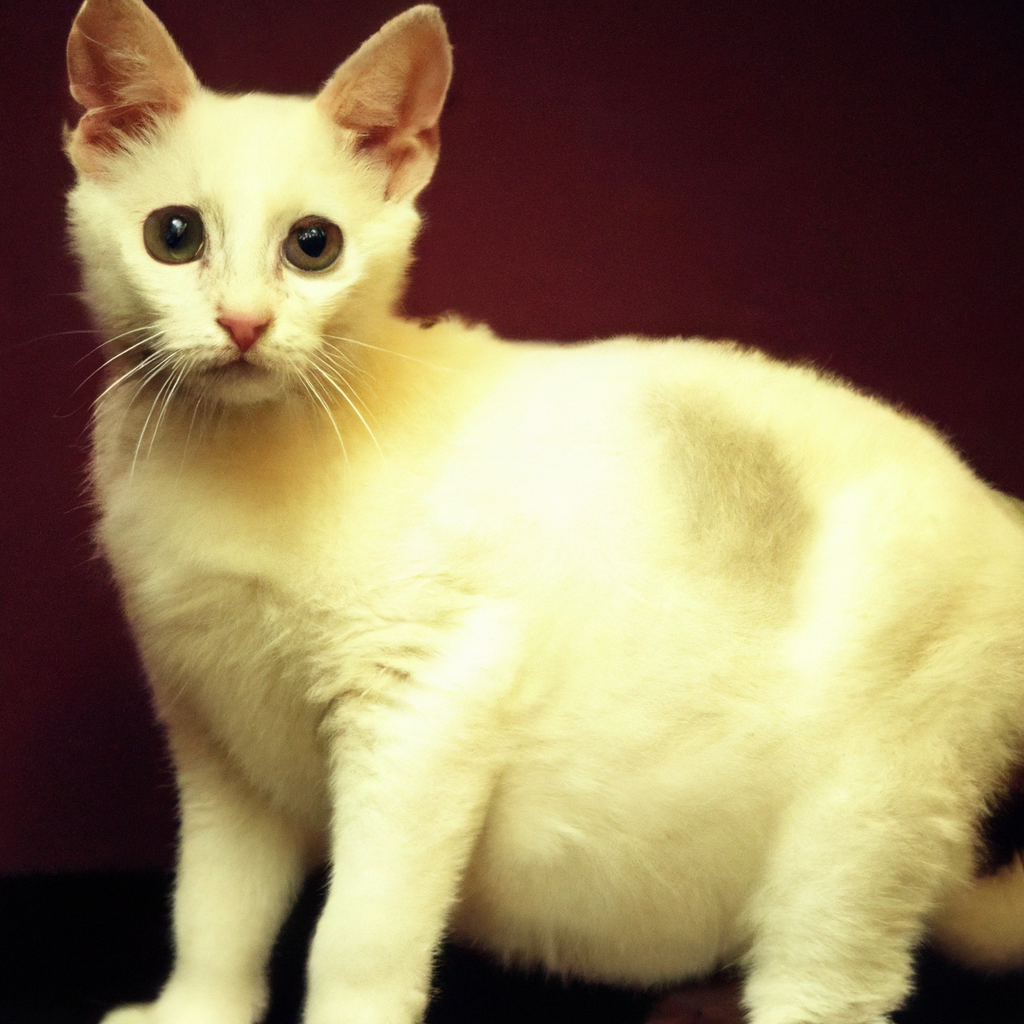Imagine the excitement of planning a trip, eager to explore new places and soak in new experiences. But what if you are the proud owner of a pregnant cat? Your heart may be filled with concern, wondering if it is safe to embark on this adventure with your furry companion. In this article, we will explore the question: Can you travel with a pregnant cat? We will examine the potential risks, necessary precautions, and expert advice to help ensure the well-being of both you and your precious feline friend.
Planning a Trip with a Pregnant Cat
Is it Safe to Travel with a Pregnant Cat?
Before embarking on a trip with your pregnant cat, it is crucial to determine whether it is safe for her to travel. While travel itself is generally not recommended during pregnancy, there may be situations where you have no choice but to take your cat with you. It is essential to consult with your veterinarian to assess the overall health and condition of your cat before making any travel plans.
Consulting with your Veterinarian
Before making any travel arrangements, make an appointment with your veterinarian. They will be able to evaluate your cat’s health and provide valuable guidance based on her specific needs. The veterinarian will assess the stage of your cat’s pregnancy, general health, and any potential complications that may arise during the journey. They will also advise you on the safest mode of transportation, the timing of the trip, and precautions to take to ensure the safety and comfort of your pregnant cat.
Choosing the Right Time to Travel
Timing is crucial when planning a trip with a pregnant cat. It is generally recommended to avoid traveling during the final stages of pregnancy or within a week before the expected due date. This precaution is to prevent any unnecessary stress or complications that may arise during the journey. It is advisable to consult with your veterinarian to determine the optimal time to travel based on your cat’s specific situation.
Preparing for the Journey
To ensure a smooth and stress-free trip for your pregnant cat, it is essential to make adequate preparations. Gather all necessary supplies, including a proper cat carrier, bedding, food, water, and any medications or comfort items she may require. Additionally, it is crucial to have a contingency plan in case of unforeseen circumstances, such as sudden labor or health issues. Pack a separate emergency kit with essential supplies, including contact information for nearby veterinary hospitals, to be prepared for any unexpected situations that may arise during your journey.
Traveling by Car
Taking Precautions for Car Travel
When traveling by car with a pregnant cat, it is essential to take certain precautions. Ensure that the car is well-ventilated, maintaining a comfortable temperature throughout the journey. Avoid sudden and jerky movements, as these can cause stress and discomfort for your cat. Additionally, refrain from smoking inside the vehicle, as exposure to secondhand smoke can be harmful to both you and your cat.
Securing the Cat Carrier
The cat carrier should be securely fastened inside the car to prevent any movement or displacement during the journey. Placing the carrier in the back seat is recommended, as it provides a more stable and comfortable environment for your pregnant cat. Use a seatbelt or secure the carrier using a specially designed seatbelt adapter to ensure the safety of your cat.
Making Frequent Stops
Long car journeys can become tiresome and physically exhausting for your pregnant cat. Make frequent stops to allow her to stretch her legs, use the litter box, and drink water. These breaks will help alleviate any discomfort and stress caused by the prolonged confinement in the carrier. Ensure that the rest stops are quiet, secure, and free from any potential hazards or noisy distractions.
Providing a Comfortable Environment
Creating a comfortable environment inside the car can significantly contribute to your pregnant cat’s well-being during the journey. Place a familiar blanket or bedding inside the carrier to provide a sense of security and familiarity. Keep the noise level to a minimum and play soothing music to create a calm and relaxed atmosphere. Additionally, avoid exposing your cat to excessive sunlight by using window shades or covers.
Traveling by Air
Understanding Airline Policies
When considering air travel with a pregnant cat, it is important to familiarize yourself with the specific policies of the airline you intend to fly with. Different airlines have varying regulations and restrictions when it comes to flying with pets, particularly pregnant cats. Some airlines may not permit pregnant cats to travel at all, while others may have specific requirements or restrictions in place. Contact the airline directly to obtain accurate information and ensure compliance with their policies.
Considering the Health and Safety of the Cat
Flying can be particularly stressful for animals, including pregnant cats. The changes in air pressure, noise levels, and unfamiliar surroundings can all contribute to increased anxiety and discomfort. It is advisable to consult with your veterinarian to assess whether air travel is a viable option for your pregnant cat, taking into consideration her current health condition and pregnancy stage. Your veterinarian may recommend alternative travel options that are less stressful for your cat.
Preparing the Cat for Air Travel
If air travel is deemed safe and necessary for your pregnant cat, there are certain preparations that need to be made. Ensure that your cat’s carrier meets the airline’s requirements for size, ventilation, and security. Acclimatize your cat to the carrier by gradually introducing her to it in the days leading up to the journey. Familiarize her with the carrier’s interior and make it a comfortable and inviting space for her. Additionally, consult with the airline to understand any specific documentation or health requirements that need to be fulfilled before travel.
Traveling by Train or Bus
Checking Transportation Regulations
Before traveling by train or bus with your pregnant cat, it is crucial to check the regulations and policies of the specific transportation company you intend to use. Some train and bus companies may have restrictions or conditions regarding the transportation of pets, particularly pregnant cats. Ensure that you have a clear understanding of these regulations to avoid any last-minute complications or denials of boarding.
Arranging the Necessary Equipment
When traveling by train or bus, it is important to have all the necessary equipment to ensure the safety and comfort of your pregnant cat. Use a properly sized and well-ventilated carrier that is secure and stable to prevent any movement or escape during the journey. Pack essentials such as food, water, bedding, and any prescribed medications your cat may require. Additionally, bring along a portable litter box to provide your cat with a familiar and hygienic place to relieve herself during rest stops.
Ensuring a Calm and Stress-free Environment
When traveling on a train or bus, your pregnant cat may be subjected to new and unfamiliar sounds, vibrations, and movements. To minimize stress, choose a quiet seating area away from loud noises and crowds. Place the carrier on a stable surface and avoid sudden jolts or movements that could cause discomfort. Covering the carrier with a breathable blanket can help create a sense of security and privacy for your cat.

Traveling with a Pregnant Cat Internationally
Researching Import and Export Regulations
If you plan to travel internationally with your pregnant cat, it is essential to research the import and export regulations of the destination country. Different countries have varying requirements when it comes to traveling with pets, including pregnant cats. Some countries may impose additional restrictions or mandatory quarantines upon arrival. Familiarize yourself with these regulations well in advance of your trip to ensure compliance and avoid any delays or complications.
Completing the Required Documentation
International travel with a pregnant cat often requires completion of specific documentation and paperwork. Contact the appropriate government authorities and veterinary agencies of both your departure and destination countries to understand the necessary documentation. This may include health certificates, vaccination records, microchip certification, and import permits. It is essential to begin the paperwork well in advance, as some requirements may take time to fulfill.
Obtaining a Health Certificate
As part of the documentation required for international travel with a pregnant cat, a health certificate from your veterinarian is usually mandatory. The health certificate serves as proof that your cat is in good health, free from any contagious diseases, and fit to travel. Schedule an appointment with your veterinarian well in advance to undergo any necessary medical examinations and obtain the health certificate. Keep in mind that the health certificate often has an expiration date, so ensure that the validity aligns with your travel dates.
Potential Risks and Considerations
Increased Stress on the Cat
Traveling, particularly during pregnancy, can be stressful for your cat. The unfamiliar environments, noises, and vibrations associated with different modes of transportation can contribute to heightened anxiety. It is crucial to closely monitor your cat’s behavior and stress levels throughout the journey. Make every effort to provide a calm and comfortable environment, and be prepared to adjust travel plans if necessary for the well-being of your pregnant cat.
Potential Complications during Travel
Pregnancy itself carries certain risks, and traveling can exacerbate those risks for your cat. The physical strain of travel and the potential for exposure to infectious diseases may increase the chances of complications. It is essential to consult with your veterinarian before traveling and to be aware of any warning signs or unusual behavior that may signal a problem. Promptly address any concerns and, if needed, seek emergency veterinary care during the journey.
Identifying Warning Signs
During travel, it is crucial to stay vigilant and monitor your pregnant cat for any signs of distress. Warning signs may include excessive panting, restlessness, refusal to eat or drink, vomiting, or any significant change in behavior. If you observe any of these symptoms, it is important to take immediate action. Contact your veterinarian for guidance or seek veterinary care at the nearest available facility if the signs are severe or worsen.
Emergency Preparedness
While you may hope for a smooth and uneventful journey, it is essential to be prepared for any unexpected emergencies. Before departing, compile a list of nearby veterinary hospitals or emergency clinics along your route, ensuring that you have contact information readily available. Pack a separate emergency kit containing supplies such as bandages, antiseptic solution, hand sanitizer, and any specific medications or treatments prescribed by your veterinarian. Being prepared can help mitigate potential risks and ensure the well-being of your pregnant cat.
Alternative Options to Traveling
Cat Sitters or Pet Boarding
If travel is not advisable or feasible for your pregnant cat, one option is to arrange for a cat sitter or pet boarding. Find a trusted and experienced cat sitter who can care for your pregnant cat in your absence. Ensure that the environment is safe, secure, and equipped to meet the specific needs of a pregnant cat. Alternatively, consider boarding your cat at a reputable pet boarding facility that specializes in accommodating pregnant cats. These options can provide peace of mind, knowing that your cat is well-cared for while you are away.
Temporary Housing Arrangements
In certain circumstances, it may be more practical to temporarily relocate your pregnant cat to a safe and comfortable environment before and during your trip. This option could involve staying with a trusted friend or family member who can provide the necessary care and attention. Ensure that the temporary housing arrangement is suitable for a pregnant cat, with familiar surroundings, proper nutrition, and a calm atmosphere conducive to her well-being.
Arranging for Postpone Travel
If the journey poses significant risks or complications for your pregnant cat, it may be prudent to postpone travel until after she has given birth. This decision may be recommended by your veterinarian or based on your assessment of your cat’s health and well-being. Prioritize the health and safety of your pregnant cat, and make alternative plans, such as rescheduling your trip, to ensure optimal care and minimize any potential risks.
Taking Care of a Pregnant Cat During Travel
Providing a Safe and Comfortable Space
During travel, it is important to create a safe and comfortable space for your pregnant cat. Ensure that the carrier is appropriate in size, well-ventilated, and secure. Line the carrier with soft bedding to provide comfort and absorb any accidents or spills. Consider using a carrier with a removable top or a front-loading carrier for easy access and monitoring during the journey.
Monitoring Food and Water Intake
Maintaining proper nutrition and hydration for your pregnant cat throughout the journey is vital. Pack enough of your cat’s regular food to last the duration of the trip, including extra in case of unexpected delays. Offer water regularly, using a spill-proof and easily accessible water dispenser. It is essential to monitor your cat’s food and water intake to ensure she remains adequately nourished and hydrated during travel.
Maintaining Health and Hygiene
Maintaining good health and hygiene practices is crucial for the well-being of your pregnant cat during travel. Keep the carrier clean and odor-free by regularly removing any waste or soiled bedding. If your cat requires any medications or treatments, administer them as prescribed by your veterinarian. Be attentive to any signs of illness or discomfort and seek veterinary care promptly if needed.
Scheduling Regular Vet Check-ups
Throughout the journey, it is advisable to schedule regular check-ups with a local veterinarian. These check-ups will help ensure that your pregnant cat’s health is closely monitored and any potential issues are addressed promptly. The veterinarian can assess your cat’s overall well-being, provide any necessary treatments or adjustments to care, and offer guidance specific to the travel circumstances.
Preparing for Unexpected Situations
Knowing Nearby Veterinary Hospitals
Before embarking on your trip, research and make note of nearby veterinary hospitals or emergency clinics along your planned route. In the event of an unexpected emergency or health concern, having this information readily available can be invaluable. Keep the contact details easily accessible so that you can quickly seek professional veterinary care if needed.
Having an Emergency Plan
It is important to have a well-thought-out emergency plan in place before traveling with a pregnant cat. This plan should include contact information for your veterinarian and local veterinary hospitals, as well as any additional emergency contacts. Inform trusted individuals about your travel itinerary and emergency plan, so they can assist if necessary. Be familiar with common emergency situations and educate yourself on basic first aid for cats to address any immediate health concerns.
Keeping Essential Supplies On-hand
A well-prepared travel kit can help you navigate unexpected situations during your journey. Pack essential supplies such as gauze, bandages, antiseptic solution, and a thermometer. Include any prescribed medications, along with copies of your cat’s medical records and vaccination history. Having these supplies readily available can give you peace of mind and allow for quick action if an emergency arises.
Returning Home with a Pregnant Cat
Recreating a Familiar Environment
After the journey, it is crucial to recreate a familiar and comfortable environment for your pregnant cat. Set up her nesting area with a soft, warm bed and provide a quiet and secluded space for her to rest. Make sure she has easy access to food, water, and a litter box. Avoid introducing any major changes or disruptions to her surroundings during the post-travel period, as this could cause additional stress.
Allowing Adequate Rest and Recovery
Traveling can be physically and emotionally exhausting for a pregnant cat, so it is important to allow for adequate rest and recovery upon returning home. Provide a quiet and peaceful environment that encourages relaxation and minimizes any unnecessary disturbances. Monitor your cat closely for any signs of fatigue or discomfort and consult with your veterinarian if you have any concerns about her recovery.
Monitoring the Cat for any Abnormalities
Upon returning home, closely monitor your pregnant cat for any abnormalities or changes in behavior. Keep a watchful eye on her eating and drinking habits, litter box usage, and overall activity level. Report any unusual symptoms or concerns to your veterinarian promptly. Early detection and intervention are essential in ensuring the well-being of your pregnant cat during the post-travel period.
Traveling with a pregnant cat requires careful planning, consideration, and consultation with your veterinarian. By taking the necessary precautions, providing a safe and comfortable environment, and monitoring your cat’s health throughout the journey, you can help ensure a safe and successful trip for both you and your pregnant feline companion.



